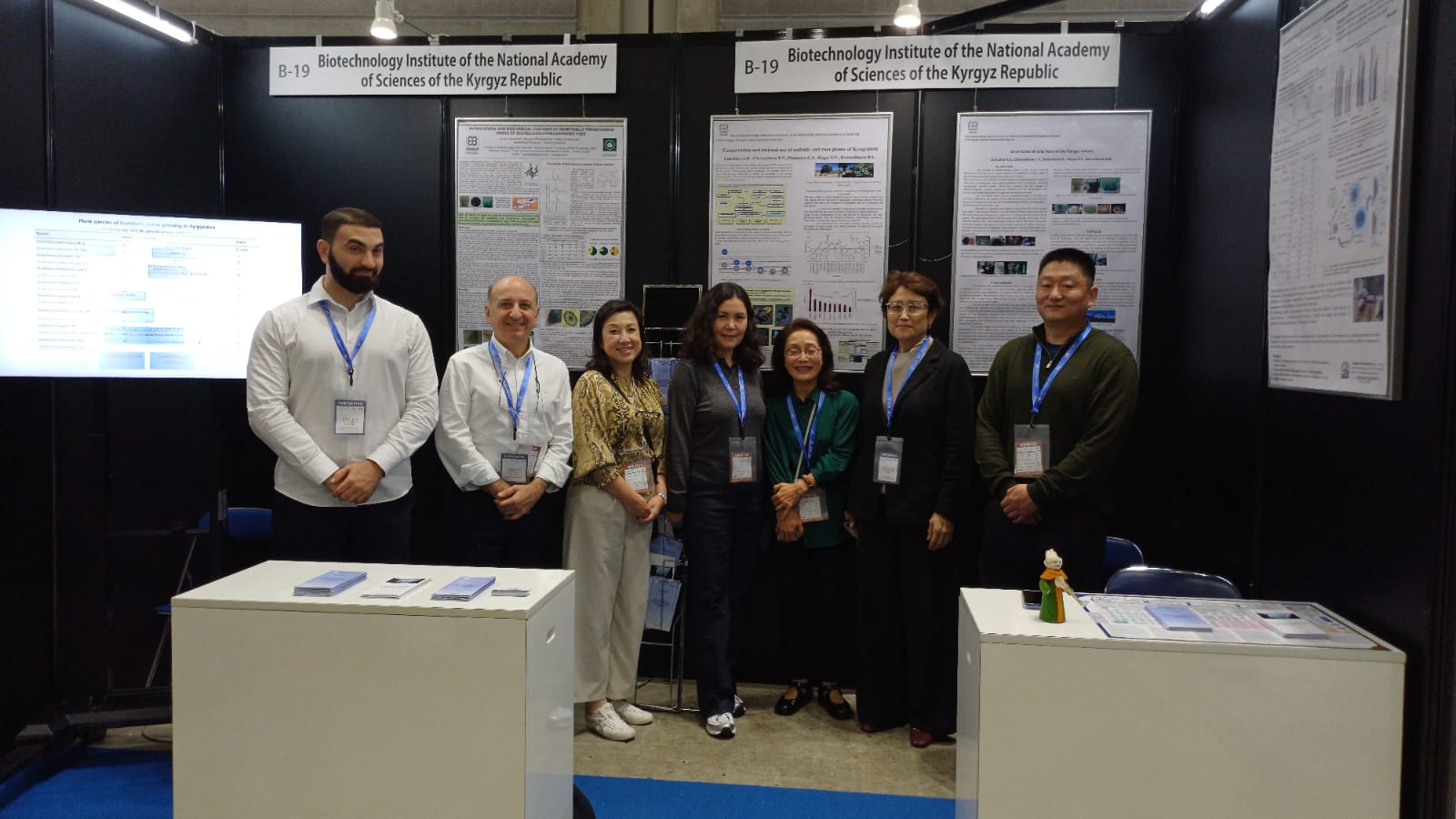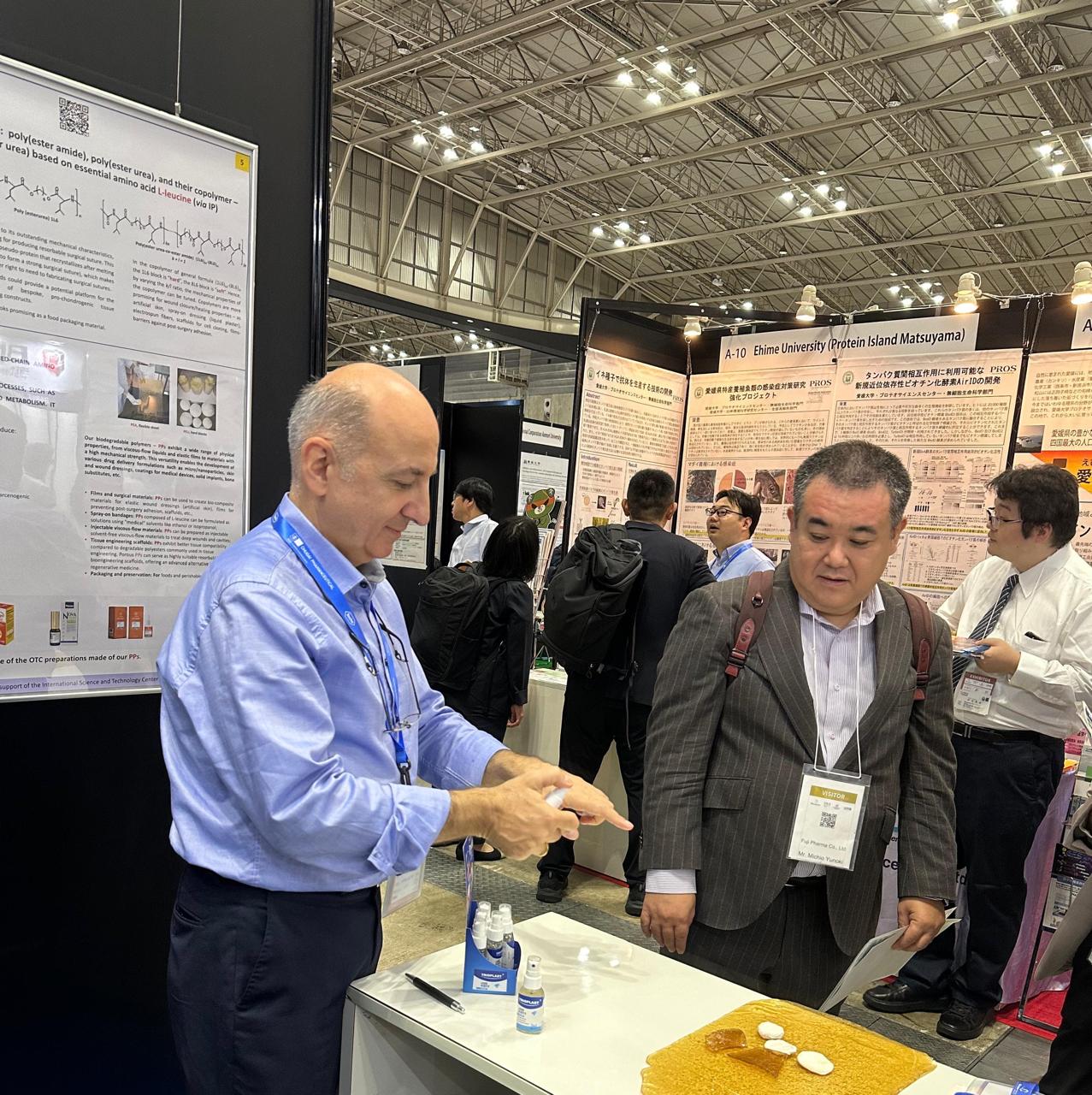ISTC Supports Georgia and Kyrgyz Republic Teams at BioJapan 2025

BioJapan 2025, held October 8–10 at Pacifico Yokohama, Japan, recognized as Asia’s leading bio-industry partnering event, brought together over 22,000 visitors, creating a dynamic platform for international collaboration, scientific exchange, and innovation.
This major event underscores Japan’s pivotal role in biotechnology innovation and positions BioJapan as a bridge for global scientific diplomacy and technology transfer across Asia.
BioJapan is a platform for dealmakers in Biotechnology, Regenerative Medicine, and Healthcare industry, including academic institutions and major Japanese & global pharmaceutical companies.As part of ISTC’s mission to promote international scientific cooperation, the Center facilitated the participation of two research institutions: The Agricultural University of Georgia and The Biotechnology Institute of the National Academy of Sciences of the Kyrgyz Republic
The Agricultural University of Georgia presented its pioneering project,
"PSEUDOPROTEINS – Biodegradable Polymers for Versatile Biomedical Applications."
This innovative research focuses on the development of smart, biocompatible, and biodegradable materials for use in drug delivery systems, medical devices, wound healing, and tissue engineering. These pseudoproteins show significant promise for a wide range of biomedical and environmental applications.

The Biotechnology Institute of the National Academy of Sciences of the Kyrgyz Republic showcased their research “Conservation of Endemic and Rare Plants of Kyrgyzstan and Study of Their Potential Biomedical Properties Using Biotechnology Methods.” The team emphasized the importance of preserving the region’s rich biodiversity and exploring the biomedical potential of native plant species through advanced biotechnological approaches.
Both participating teams emphasized the value of presenting their research projects at BioJapan 2025. They noted that the event provided a vital platform for establishing international research partnerships and increasing the global visibility of their work. Discussions with Japanese universities, research institutes, and companies paved the way for potential collaborations in polymer science, plant biotechnology, molecular biology, and medical diagnostics. These exchanges not only fostered mutual understanding but also strengthened ISTC’s visibility and partnerships within Japan’s scientific and innovation ecosystem.
Events like BioJapan not only accelerate scientific innovation but also play a crucial role in strengthening cross-border collaboration among researchers and institutions across Asia and beyond. For ISTC, participation in BioJapan 2025 also reaffirms the Center’s expanding engagement in East Asia and its contribution to building sustainable scientific partnerships between Central Asia and Japan. ISTC remains committed to supporting such initiatives that bridge science, technology, and international cooperation.

